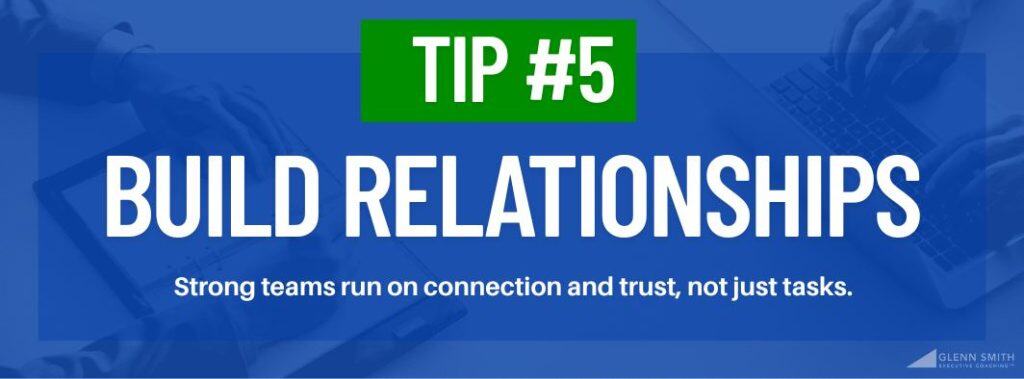So, What Does a Manager Actually Do in a Family Business?
If you’re running a family business, odds are you’re not just wearing one hat—you’ve got about six of them stacked on your head, and maybe one in your back pocket for emergencies. You’re likely the boss, the bookkeeper, the cheerleader, the repair tech, and the one who brings donuts when morale is low. But somewhere in all that, you’re also the manager—and that’s a role worth unpacking.
Let’s break it down. Not in business school jargon, but in a real-world, “let’s get things done and still make it home for dinner” kind of way.
A Manager Sets the Vision—Then Makes It Make Sense

One of the trickiest parts of running a family business is getting everyone on the same page. You might have a vision in your head—something like growing the shop, handing it down to your kids, or just making things run smoother so you can finally take that beach vacation. Whatever the dream, it needs to be shared, clear, and practical.
As a manager, your job is to take that vision and turn it into action. You don’t need a fancy org chart. But you do need clarity:
- What are we trying to do this year?
- Who’s doing what?
- What needs to happen first?
It might mean having a whiteboard in the breakroom or chatting through goals at Sunday dinner. Just make sure everyone knows where the business is headed—and how they fit in.
A Manager Plans the Work—Without Overloading the Wagon

In a small family business, it’s easy to say yes to everything. Need someone to cover a shift? Sure. Can you fix the invoice system while juggling payroll? Why not?
But good managers don’t just do more—they plan better. That means:
- Looking at what needs to be done.
- Figuring out who’s best equipped to do it.
- Making sure no one (including you!) is overloaded.
You don’t need a project management app (though they can help). Sometimes it’s as simple as a shared calendar or a weekly sit-down to go over the to-do list. The key is making sure everyone knows their lane and feels good about staying in it.
A Manager Delegates—And Trusts Others to Do the Job

Here’s where things get a little uncomfortable for a lot of family business owners: letting go.
It’s tempting to think, “I can do it faster myself.” And you might be right. But that only works until you’re the bottleneck holding everything up. Real management means trusting others to take ownership.
Delegating doesn’t mean dumping tasks. It means setting clear expectations, showing someone how to succeed, and being around if they hit a bump. Yes, mistakes might happen. But every mistake is a learning moment, and those moments are how your team (and business) grows.
A Manager Supports, Coaches, and Lifts Others Up

Managing isn’t just about assigning tasks. It’s about helping people succeed in the roles you’ve given them.
Sometimes that looks like answering questions without sounding annoyed. Sometimes it’s giving feedback with patience, not frustration. And sometimes it’s seeing that someone’s struggling before they even say a word.
In a family business, this part can be tough, especially when you’re managing your own relatives. But whether it’s your nephew on the register or your spouse handling logistics, everyone deserves support and encouragement. Coaching doesn’t mean criticizing. It means asking, “How can I help you do this better?”
A Manager Builds Relationships That Keep the Business Going

A family business runs on relationships. Sure, you’ve got processes and products, but at the end of the day, it’s about people. And as a manager, you’re the glue.
Let’s talk about three key relationships you’re managing daily:
With Your Team (a.k.a. Family)
This one’s personal—and complicated. Managing your sister or your kid isn’t like managing an outside employee. There are history, habits, and holiday dinners to consider. The best managers lead with respect and fairness, even when it’s hard. That means:
- Being clear, not controlling.
- Giving praise when it’s earned.
- Addressing issues directly, not passive-aggressively.
Want to go deeper on this? Managing family dynamics is one of the biggest—and most personal—challenges in any family-run business. Here are key ways family businesses can thrive—even with complex dynamics.
With Your Customers
You probably already know this one: happy customers = repeat business. But managing customer relationships means making sure your team is equipped to deliver great service consistently. That might mean training someone on handling complaints or stepping in personally when a big issue comes up. Either way, it’s your job to make sure customers feel heard and valued.
With Outside Partners
Vendors, suppliers, contractors—they’re all part of your ecosystem. As manager, you’re often the point person here. Keep those relationships strong by being reliable, communicative, and respectful. A good reputation goes a long way, especially in close-knit communities where word travels fast.
A Manager Knows When to Step Back—and When to Step In

Here’s a lesson that takes a lot of us a long time to learn: not everything needs your fingerprints on it.
Sometimes, your best move is to step back and let your people shine. Other times, especially when things start to wobble, you need to step in—not to take over, but to offer guidance.
That balance of involvement vs. independence is what turns good managers into great ones. And in a family business, getting it right makes everything smoother: the workflows, the relationships, the legacy you’re building.
A Manager Keeps Learning

Finally, no matter how long you’ve been doing this, there’s always more to learn. Whether it’s a better way to train your team, a new system to streamline operations, or just a different approach to managing people, stay curious.
You don’t have to become a management guru. But read a book now and then. Take a leadership course. Talk to other small business owners. Better yet, ask your employees what would help them do better. That openness? It’s what keeps your business growing—and your leadership evolving.
You’ve Got This (and You Don’t Have to Go It Alone)
Managing a family business is a unique challenge. It’s personal, emotional, and rewarding in ways big companies will never understand—but it can also be exhausting.
You don’t have to be perfect. You just have to be intentional.
If you’re feeling stuck or just want to talk through what’s working and what’s not, don’t hesitate to reach out to someone who gets it—whether that’s a business coach, a mentor, or a peer.
Sometimes, the best management decision you can make is to ask for a little help.
Ready to Strengthen Your Family Business?
At Family Owned Business Coaching, we’re here to help you manage the hurdles that come with running a family business. Whether you’re trying to define roles clearly, delegate more effectively, or create a stronger sense of unity, Glenn Smith and his expert team are ready to guide you through it all.
Looking for more insights? Check out our blog for expert advice on how to manage and lead a family business successfully. And don’t forget to Family Business Coaching page, where we offer the tools and support you need to develop lasting leadership skills.
Want to take your family business from “scrambling” to “strategic”? Contact Glenn Smith today to get started!


